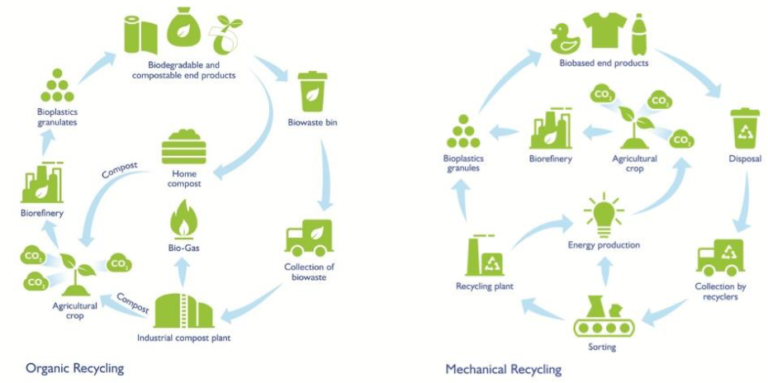News
FKuR: Heading for a circular economy and sustainability with biobased and biodegradable plastics
06.04.2019

- The resource-saving material recycling established for conventional (petroleum-based) plastics can also be used, without any restrictions, for the biobased alternatives which are often used as direct drop-in products (such as Bio-PE or Bio-PET). Recyclates can be returned to the recycling cycle as often as possible products can be used and, in the end, will have to be ultimately used for energy recovery. Thus, biobased plastics can be used to generate renewable energy that does not produce any additional harmful CO2 , a closed CO2 cycle, which is in-line with nature’s model.
- Biodegradable plastics that comply with the standard for industrial compostability (e.g. EN 13432) can be organically recycled. This is particularly useful when plastic products are contaminated with food where material recycling would be unreasonably expensive. Simple and hygienic handling of biowaste using compostable bags for example, ensures that less valuable waste is disposed of via the residual waste bin. This gives the potential to increase the amount of biowaste collected separately, and at the same time, increases the yield of valuable compost. This can be used later as fertilizer for those crops that are at the beginning of this cycle.